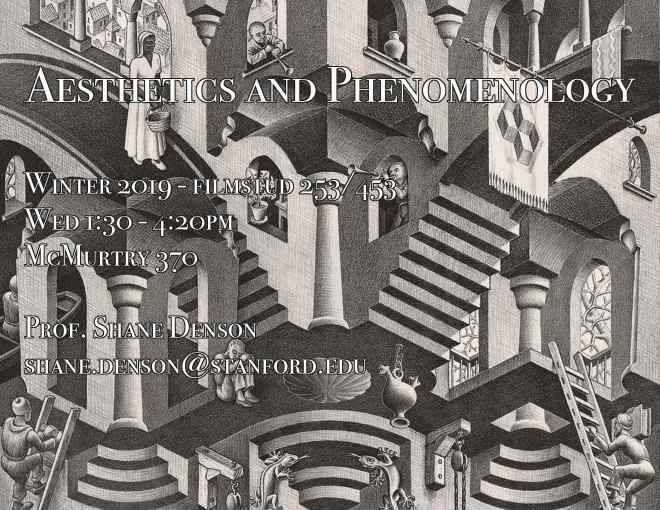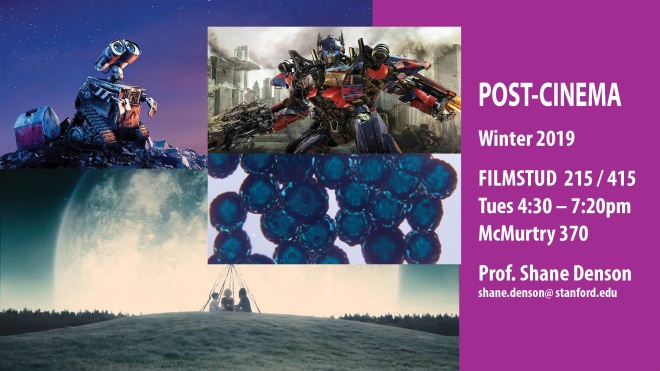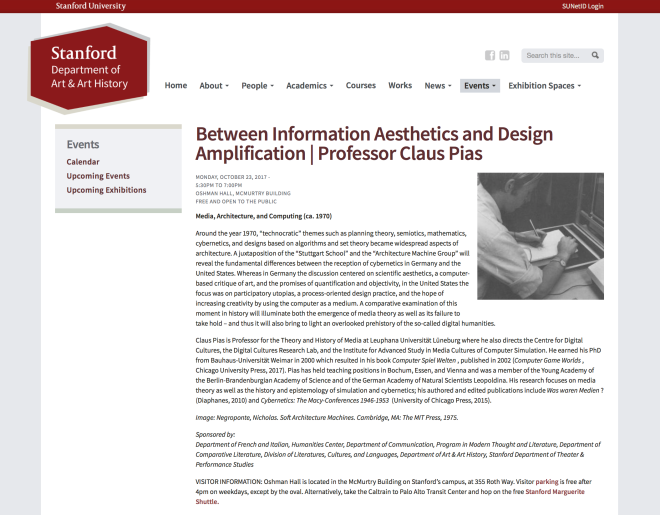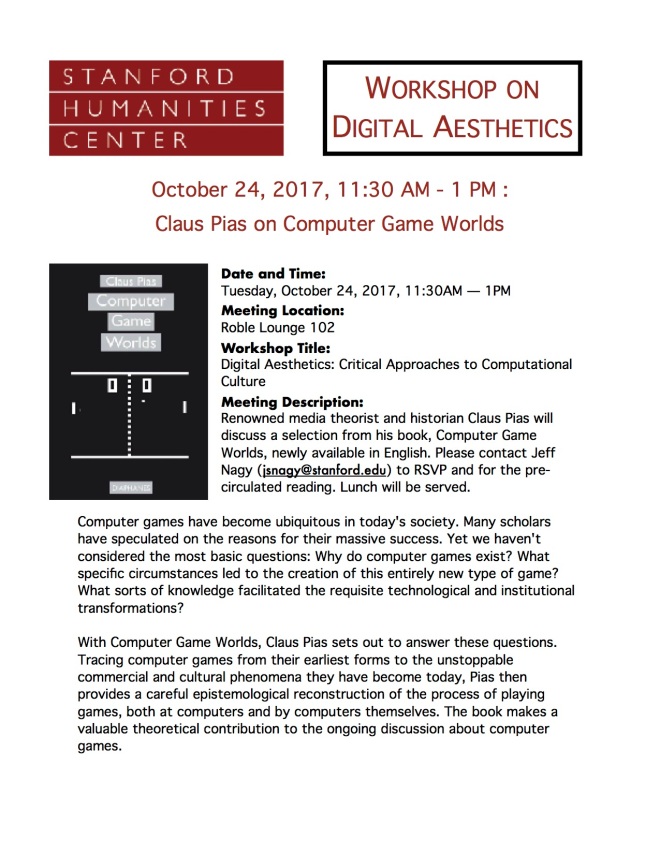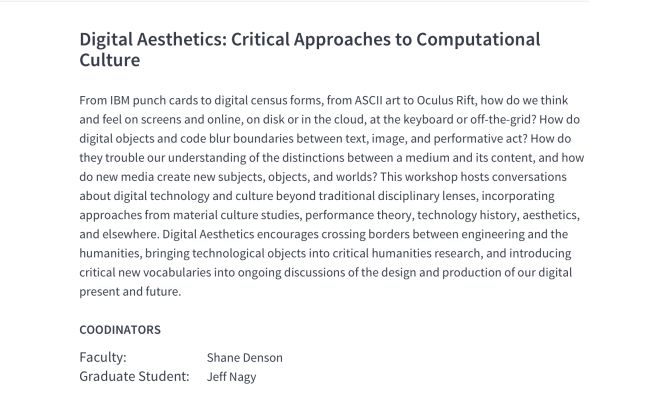
We are happy to announce the first Digital Aesthetics Workshop event of the year. Please join us in welcoming Luciana Parisi, who will present on “The negative aesthetic of AI” on October 20, 2-4PM PT. The event will take place in the Stanford Humanities Center Boardroom, where refreshments will be served. Below you will find the abstract and bio attached, as well as a poster for lightweight circulation. We look forward to seeing you there!
Zoom link for those unable to join in-person: tinyurl.com/3fx49d8p
Abstract:
Does AI have an aesthetic form? Perhaps one can argue that this form may entail a thinking without self-reflectivity and yet one may still hang on a function of imagination for artificial thinking. But one cannot neglect that self-reflectivity precisely defines the procedure by which reason is supplemented by imagination – a generative function that grants the system not to fall into its dogmatic premises. From this standpoint, the function of imagination seems to collide with the role of noise and randomness in generative AI. The scope here however is not to establish a direct correlation between imagination and noise or even to argue for a machine aesthetics that carries through the project of aesthetic judgment in the moment of the sublime, namely the encounter with the incalculable and the unmeasurable. Instead of a prosthetic extension of aesthetic judgement, this talk discusses the negative function of imagination in Generative AI as an instance of a negation of aesthetics: a socio-techno-genic insurgence of radical alienness from where the recursive iteration of the sublime fails its task of rebooting the system.
Bio:
Luciana Parisi’s research lays at the intersection of continental philosophy, information sciences, digital media, computational technologies. Her writings investigate technology in terms of ontological and epistemological possibilities of transformation in culture, aesthetics and politics. Her publications address the techno-capitalist investment in artificial intelligence, biotechnology, nanotechnology to explore challenges to conceptions of gender, race and class. She has also written extensively within the fields of media philosophy and computational design in order to investigate metaphysical possibilities of instrumentality.
She was a member of the CCRU (Cybernetic Culture Research Unit) and currently a co-founding member of CCB (Critical Computation Bureau) through which she co-ideated the Symposium Recursive Colonialism, Artificial Intelligence and Speculative Computation (Dec 2020) https://recursivecolonialism.com/home/
In 2004, she published Abstract Sex: Philosophy, Biotechnology and the Mutations of Desire, which investigates capitalist experimentations in molecular strata of nature together with non-linear theories of endosymbiosis to argue against biocentric models of sexual reproduction and conceptions of sex and gender in terms of biodigital replications and non-filiative bacterial sex. Her book Contagious Architecture: Computation, Aesthetics and Space (2013) explores algorithms in architecture and interaction design as a symptom of global cultural transformation, where algorithmic computation represents a mode of thought that challenges dominant models of human cognition. Her current project, Automating Philosophy (forthcoming) explores the possibilities of a radical thought and critique which starts with inhuman intelligence and cosmocomputations. Part of this research has been published in recent articles “Media Ontology and Transcendental Instrumentality” (2019) and “Xenopatterning: Predictive Intuition and Automated Imagination” (2019).


